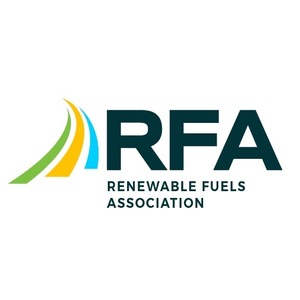RFA to Biden: “Double down” on ethanol to cut prices at the pump

November 16, 2021
BY Renewable Fuels Association
As the Biden administration continues to explore options for addressing high gas prices, the Renewable Fuels Association sent a letter to the White House late Monday explaining that strong Renewable Fuel Standard volumes and expanded ethanol consumption would help keep pump prices in check.
RFA’s letter follows media reports that Biden administration officials may be considering lowering RFS volumes based on the mistaken belief that the program somehow is a factor contributing to current high gas prices.
Advertisement
Advertisement
“To be clear, lowering biofuel blending requirements under the Renewable Fuel Standard (RFS) would not reduce the cost of gasoline for American households,” wrote RFA President and CEO Geoff Cooper in a letter to National Economic Council Director Brian Deese. “In fact, cutting RFS volumes would most assuredly have the exact opposite effect on consumer gas prices. Reducing the domestic usage of low-cost renewable fuels like ethanol would increase demand for petroleum at a time when global oil inventories are already strained and prices are at seven-year highs.”
RFA noted that ethanol presently extends the U.S. gasoline supply by nearly 1.1 million barrels per day, equivalent to the combined crude oil production from Alaska, California, Utah, and Wyoming. According to a renowned economist and energy policy advisor to two former presidents, the use of roughly 1 million barrels per day of ethanol in the United States has lowered the average price of crude by $6 per barrel, thereby cutting the retail gasoline price by $0.22 per gallon.
The letter also pointed out that gasoline with just 10 percent ethanol (E10) is currently selling for 10-15 percent less (typically 35-50 cents per gallon) than “ethanol-free” gasoline (E0). Higher blends like E15 and E85 offer even greater savings.
Advertisement
Advertisement
“Rather than undermining the market for low-carbon renewable fuels, we encourage you to follow through on the President’s Day 1 pledge to ‘double down on the liquid fuels of the future,’” Cooper wrote. “This includes immediately proposing strong RFS volumes for 2021 and 2022, and taking swift regulatory action to facilitate the rapid expansion of E15 availability nationwide.”
Related Stories
Neste Corp. on July 24 released second quarter results, reporting record quarterly renewable product sales volumes despite weaker margins. SAF sales were up nearly 80% when compared to the first quarter of 2025.
Valero Energy Corp. on July 24 released second quarter results, reporting a profitable three-month period for its ethanol segment. The renewable diesel segment posted a loss, but the company’s new sustainable aviation fuel (SAF) unit operated well.
The IRS on July 21 published a notice announcing the 2025 calendar-year inflation adjustment factor for the Section 45Z clen fuel production credit. The resulting adjustment boosts maximum the value of the credit by approximately 6%.
The U.S. Senate on July 23 voted 48 to 47 to confirm the appointment of Aaron Szabo to serve as assistant administrator of the U.S. EPA’s Office of Air and Radiation. Biofuel groups are congratulating him on his appointment.
U.S. Secretary of Agriculture Brooke L. Rollins today announced the reorganization of the USDA, refocusing its core operations to better align with its founding mission of supporting American farming, ranching, and forestry.
Upcoming Events










